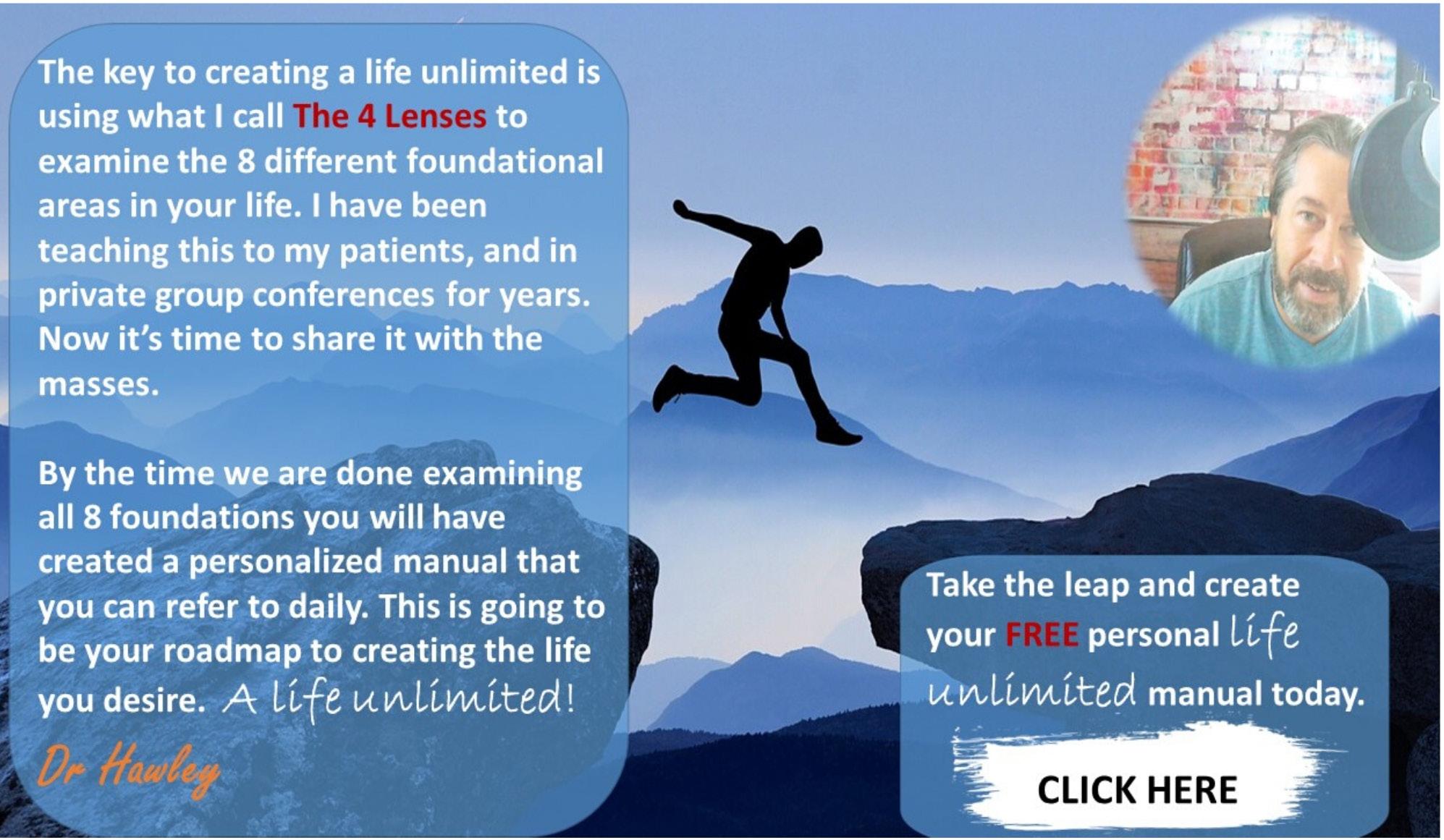
15 minute read
Approval, Judgment and Comfort
behavior automatically. However, now you have the ability to think about your past and present differently and choose to act differently. Belief #2: JUDGMENT-Other people must do “the right thing” and meet my expectations in order to be worthy. Need: importance, superiority Fear: unfairness, disappointment Demands: expect all significant others to treat me kindly and fairly, as well as act appropriately, and if they don’t, they are unworthy, rotten people who deserve to be punished Symptoms: • Unrealistic expectations on others, including expecting them to be infallible, perfect • Assuming you are the sole authority on what is right and wrong • Assuming you have authority over others • Believing everyone else is responsible for catering to your needs Emotional Consequences • Anger, rage or fury when others intentionally or unintentionally treat you poorly or unfairly or don’t meet your expectations • Impatience with others who make mistakes or aren’t perfect • Bitterness against others for not meeting your needs • Resentment toward others for being imperfect and especially for treating you unfairly or not meeting your needs Behavioral Consequences • Aggression and violence as a way of punishing others for being inappropriate or not meeting expectations • Bigotry and intolerance of anyone who does not meet your definition of right and wrong • Bullying others to enforce your belief of the way others should behave or be • Nagging others to elicit the right action you expect and require
REPLACE WITH THIS RATIONAL BELIEF: All people, including myself, are imperfect, have value to offer, and have a unique perspective of the world.
Advertisement
False Sub-Belief: I should be concerned and upset about other people’s problems. • Consequence: Wasted energy while focused on other people’s problems rather than focusing on directing your own life. • Truth: Other people’s problems almost never have anything to do with you. Getting upset because someone else is upset or has a problem does not help them feel better or fix their problem.
25 False Sub-Belief: Everyone should treat each other, and especially me, in a fair, considerate manner or they should be punished. • Consequence: Harsh condemnation of and possible lashing out at anyone who does not treat you the way you want to be treated, which is your definition of fairness. • Truth: Not everyone has the same definition of fairness or being considerate, and therefore they may act differently than you would expect. you do not hold authority over other people and it is not your role to punish people for their behavior. False Sub-Belief: People must be competent and act wisely and if not they have no value and should be punished. • Consequence: Shaming, criticizing, and rejecting others for mistakes, errors, or undeveloped abilities. • Truth: This hyper-judgment of others is what causes the cultural perpetuation of approval seeking behavior. Even if a person has a low level of competence, they still have innate value and dignity as a human being and are worthy of respect. Also, they are capable of learning, growing and improving. False Sub-Belief: When other people behave badly it means they are bad and should be punished. • Consequence: When others make mistakes or do things you disapprove of, judging them as bad and punishing them: a) equates the behavior with the person and b) does not lead to any form of improvement or resolution. • Truth: Human beings are not perfect and make mistakes. A person’s behavior in one moment does not define their character or worthiness. Everyone has a reason for why they act the way they do. Everyone has a different perspective of what is right and wrong. Belief #3: COMFORT-Life must be easy, without discomfort or inconvenience. Need: certainty, comfort, justice Fear: adversity, uncertainty, discomfort Demands: expect all external conditions to be pleasant and favorable at all times and when they’re not it is awful and unbearable. Symptoms: • Unrealistic expectations about life being perfect • Belief that living a trouble-free life is a birthright • Lack of belief in your ability cope with adversity • Complete rejection of all life problems as unacceptable Emotional Consequences • Low frustration tolerance • Self-pity and “poor me” attitude • Depression, hopelessness • Discomfort anxiety Behavioral Consequences • Procrastination • Shirking • Drug and alcohol abuse • Overindulgence in “feel good” behaviors (e.g., overeating)
REPLACE WITH THIS RATIONAL BELIEF: It is perfectly natural for life conditions to not be ideal or perfect and it’s okay if situations do not exist the way I would prefer because I am capable of finding solutions to problems and making changes that bring me happiness and opportunity regardless of the situations that happen around me.
False Sub-Belief: Things must go the way I want them to go and I should have control over them. • Consequence: Anger and frustration when things don’t go the way you want does not help you change the situation. Expecting everything to be exactly as you want it gives away your power to be happy until everything is perfect, which it won’t be, ever. • Truth: In most situations, outside conditions are almost completely outside of your control. What you do have control over is what happens internally, such as your thoughts and emotions about a situation. False Sub-Belief: If something is or may be dangerous or unpleasant I should continue to worry about it. • Consequence: Unnecessary worry causes anxiety and stress and takes away time and energy from productive solutions or other important aspects of life • Truth: If nothing can be done about the situation, there is no benefit to upset yourself by continuously thinking about it. Worrying does not prevent it from happening. If it’s going to happen anyway, you benefit more from being in a more calm, healthy emotional place between now and then. False Sub-Belief: My unhappiness, sorrow, and disturbance are caused by unpleasant or undesirable situations, and therefore I must avoid these situations. • Consequence: Preoccupation with controlling situations and people, leading to frustration when faced with the fact that this is not possible. Avoidance of anything that could go wrong, which leads to a very limited life.
• Truth: Your unhappiness and disturbance is caused by judgment of the undesirable situations, not by the situations themselves. False Sub-Belief: It is easier to avoid, rather than face and deal with, life’s difficulties, challenges and responsibilities. • Consequence: By avoiding difficulties you avoid the potential positive benefit of facing them, plus in many cases you are only putting off problems that you will need to face later, when they will often be worse. • Truth: Putting off responsibilities, such as procrastinating, only makes the task harder and more stressful. Almost all worthwhile pursuits, accomplishments, goals, and experiences require some level of challenge or unpleasant activity. False Sub-Belief: I am supposed to just be happy. I do not have control over my emotions. • Consequence: When you are not happy all the time you will either blame yourself for being unworthy or blame the outside for not meeting your expectations and making you happy. • Truth: While happiness can spontaneously arise when pleasant situations exist in your life, happiness does not depend on favorable external conditions. It is not the situation itself that causes the emotion, it is the result of the way you think about and judge the stations that happened. False Sub-Belief: All problems must have a perfect solution and that solution must be found. • Consequence: Inability to accept the reality of a situation and take action to make improvements because the solution is not perfect. Obsession with making a situation perfect, which often makes it worse. • Truth: Expecting a solution to be perfect will prevent you from identifying possible options or moving forward with any solution at all. The question is: A. Will you spend the rest of your life groveling for approval, hating on others, and being disappointed by life—and blaming all of it for your misery? B. Or, will you accept that you, others, and life simply are what they are, and only your irrational expectations and rules about it all have the power to make you miserable?
The choice is yours.
Ignite Life with Natalie Rivera
Natalie Rivera is a firestarter, speaker and entrepreneur. She is passionate about empowering others to GET REAL and live authentically. After a decade of living a life that wasn’t hers and developing Chronic Fatigue Syndrome, Natalie let go of everything and completely transformed. Through her journey to healing she rediscovered her true self and greater purpose—to inspire others to transform their lives. Natalie “retired” from the rat race at 24, put herself through school as a freelance designer, created a non-profit teen center, and later created Transformation Services, Inc., which offers motivational speaking, curriculum development, life coaching, event management, and publishing. She is also the Publisher of Transformation Magazine. Visit http://www.transformationacademy.com.

Nothing in Your Life is Wasted

By Noelle Sterne

Do you find yourself too often shaking your fist at God and asking, “When, oh Lord, oh when? . . . When will I finally get published or called back? . . . When will I be able to quit my day job? . . . When will I have enough money to write or paint or design or dance full-time? . . . When will I meet that Someone who will support me in the creating I must do and share life’s joys with?” The answer to all such questions may seem illogical at best and barely palatable at worst. But it’s simple. The Squirming Truth
Each of us, no matter how dire or sad or frustrating our circumstances, is where we want to be. I’ll be more accurate: each of us is where we need to be. We are where we are because we need to learn certain things—and we can’t get to the next place without learning them. This principle applies to everything in life.
What does this unpleasant statement really mean? After our reflexive cry of “Unfair!” it means that everything in our lives is connected. Our every experience is to learn and make better choices. If we don’t learn, we repeat the experience in different guises and hair colors, as you may have noticed, until we do. If you keep setting the toaster to extra dark, you’ll keep burning most pieces. If you keep turning off the alarm and turning over, you’ll continue that frenzied rush to get to work every morning. If you keep going to auditions without continuous practice and study in acting, you’ll keep getting more silent phones and no texts or callbacks. If you keep treating everyone with a sarcastic leer, you won’t attract someone who’s really on your side.
As we learn—finally—from each experience, we’re led to the next. This is one of life’s causes and effects, and it is inescapable. Like me, you may chafe at its apparent unfairness. When I get too exasperated, I return to a poem discovered during one of those black periods I railed at God. The poem is perfectly called “No Other Way” by Martha Smock (Fear Not! Unity Books):
Could we but see the pattern of our days, We should discern how devious were the ways By which we came to this, the present time . . . . We should forget the hurt s, the wanderings,the fears, The wastelands of our life, and know That we could come no other way or grow Into our good without these steps our feet Found hard to take, our faith found hard to meet.
Look hard at the last three lines. They mean that whatever is now in our lives, on our desks, in our inboxes and texts, however hard it is to take, it’s supposed to be here. We need to learn its lessons.
So we can stamp our feet, curse, and fling around doing our tasks with resentment and outright hate—or we can make another decision.
That is to accept what’s in front of us with grace and gratitude and invest ourselves fully in it. As we do, we’ll
learn what we need to so we can get to the next step. We can make the process easier by recognizing and accepting another heartening law: none of what we’re experiencing is wasted. Every Experience Adds
When I was struggling to write regularly, I had an office job for survival. But I secretly felt it was beneath me. I scarcely talked to coworkers, did my work grudgingly, and found it ever more difficult to show up each morning. Then a friend, more enlightened than I, showed me a new way of looking at my job. I would never “graduate,” she said, until I began to put myself wholly—100 percent or more—into it. Only then, she said, would I learn as much from it as it had to teach me.
I was a recalcitrant student. But as I gradually followed my friend’s advice, the job became more bearable. Looking back, I see how much of what I learned in that office I use today. For example, I honed my typing and computer skills and they immeasurably facilitated my editing and writing. My ability to interact with people improved, so I could more easily talk about my writing and eventually attract new business. Seeing the boss put in long hours after 5:00 o’clock spurred my discipline to write after a day’s work, and I became more motivated to write more. That disdained office job taught me some of the most crucial things I needed to learn to get closer to my dream.
But I still had a lot to learn. Often, what we so fervently crave right now we may be nowhere near ready for. Can you look at yourself honestly and admit this may be true for you? It certainly was so for me—during that time of agonizing over not writing and resenting my job, what I needed was a rigorous apprenticeship to learn discipline, practice skills, admit to my own talents, and simply keep at it.
Some unlikely examples from writer colleagues: a poet who edits cookbooks transfers her skills for condensing a recipe to her terse, haiku-like poems. A novelist who’s a tech writer applies his talents for telling people how to build engines to highly detailed descriptions of his settings and characters’ idiosyncrasies. A writer who enrolled in a vocational school realized her error and dropped out after a semester. She used the experience to sell an article to a career magazine about carefully assessing yourself and your interests.
I once had a summer job at a camp and, under protest and with much sweat, was recruited to help build a cottage on the grounds. I would have much rather stayed in the air-conditioned office to type and answer phones, but in my overalls and work gloves I learned about lintels, drywall, and molly bolts. I’d never been interested in any of these things before nor did the exposure prompt me to change careers. But three years later, when I was writing a story about a couple who discovered an old house in the country and started to refurbish it, I drew on this experience. The technical terms popped easily into my mind, and I used my earlier feelings to express the wife’s frustration and disgust with the mess surrounding her.
I could cite many other examples, from famous to unfamous but highly successful people of all kinds. They’ve got one thing in common: their delays, mistakes, and apparent wrong turns turned out to be precisely the right preparation for what they later needed and wanted to do. When my resolve wavers, it has often been renewed by the words of spiritual counselor Catherine Ponder (Pray and Grow Rich, Parker):
Your Turn
Now it’s your turn. Think about something you’ve learned, seen, or heard, past or current, in a situation you couldn’t get out of. Did you use it, surprisingly, later? How? How would you like to use it in the future?
If you’re resisting the idea of the overlap between a day job and an evening of following your bliss, open your mind. Wherever you work now—in a restaurant, hotel, office, retail store, school, hospital, or on a ship, plane, or train—look around. Everyone and all environments provide material and lessons for your dream work. Overheard conversations and arguments, melodies of hot-dog hawkers, the feeling of snow on your face, the rhythmic undulations of standing bus passengers trying to keep their balance. A songwriter I know got the idea for what became a hit staring at an ad while he rode the subway.
So, instead of resenting your abhorrent present, make friends with it. See what you can gain from it. Instead of rejecting your shameful past, thank it.
The great jazz musician Miles Davis said, “Do not fear mistakes. There are none” (quoted in I Believe in You, ed. Dan Zadra, Compenium). We rarely, if ever, see where the path is leading. Maybe that’s why we fear, shudder, regret, and rage at its turns.
Here’s an exercise to help you. Your Nothing Is Wasted List
1) Allocate 10 to 15 minutes before, after, or between the many activities that occupy you and the diversions that constantly beckon. Sit in a quiet spot with paper and pen. 2) Jot down the events in your life that you consider major. These may include, for example, a childhood move to a new town, the birth of your sister, your parents’ divorce or remarriage, your departure for college, getting a certain job, winning something, losing something, going to a certain event, meeting a certain person, missing a










